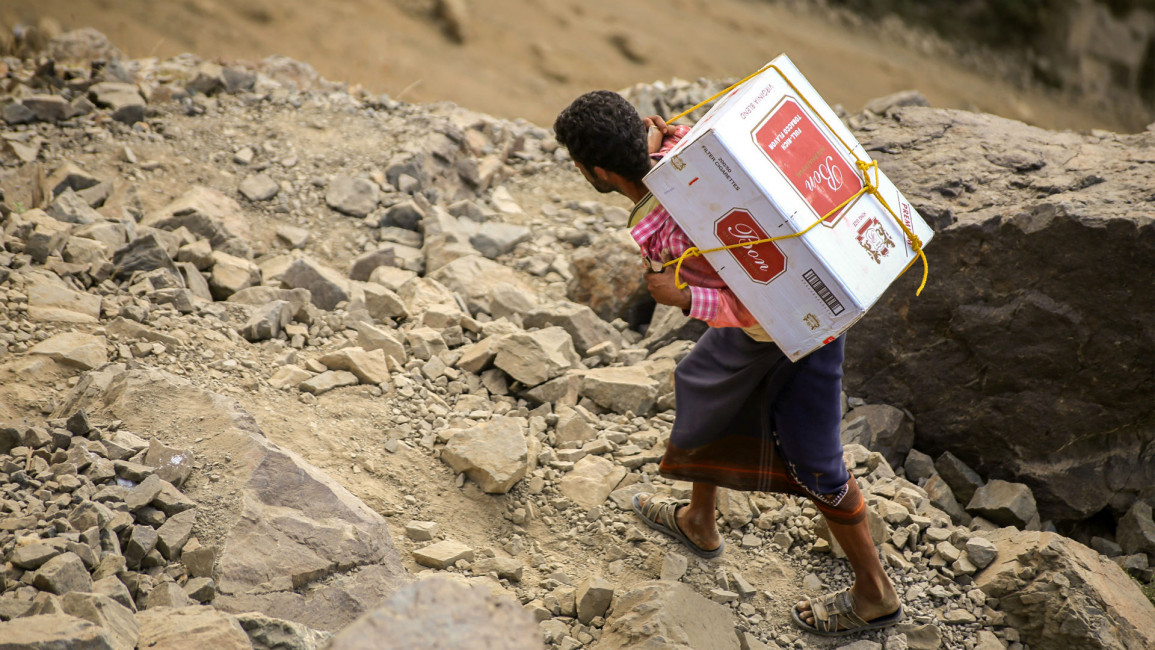Saudi-led coalition drops aid to Yemen's besieged Taiz
Saudi-led coalition war planes have dropped 40 tonnes of aid on Yemen's besieged Taiz region, a Saudi charity has said.
The aid included medicines, medical equipment and dry food, the group said, and is intended to "break the siege imposed on parts of the Taiz province", Abdullah al-Rabeeah, director of the King Salman Humanitarian Aid and Relief Centre, told the Saudi Press Agency.
Around 600,000 people in besieged Taiz are in in dire need of food and medical care as Houthi rebels surround the pro-government city.
Residents have taken desperate and dangerous steps to get urgently needed supplies.
On 18 December, rebels confiscated food and other supplies from 100 UN trucks destined for the starved inhabitants of Taiz, local aid groups and pro-government sources said.
The supplies were then distributed to areas under their control, they said.
Saudi Arabia's King Salman al-Saud established the Saudi aid centre last May.
Riyadh promised a total of $540 million in aid to Yemen, however Saudi war planes continue to pound rebel-held areas of Yemen.
UN aid chief Stephen O'Brien has criticised the coalition's Yemen air war due to the hundreds of civilians killed from bombing and its impact on blocking deliveries of fuel and other food supplies to Yemen.
Ports have also been blockaded during the war, worsening conditions for civilians.
On 9 January, Yemeni foreign minister Abdel Malak al-Mekhlafi said the next round of peace talks between Yemen's government and the Houthi rebels scheduled for this week had been postponed.
A halt to the violence is sorely needed in the Arabian Peninsula's poorest nation.
Fighting since March has killed thousands of people and left about 80 percent of the population in need of humanitarian aid, the UN has said.



